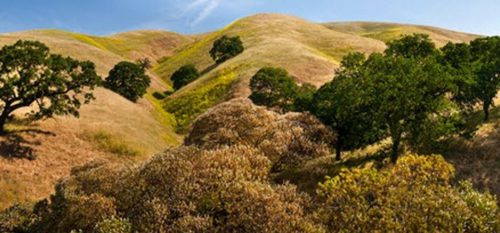East Bay Regional Park District
On July 2, 2019, the Board of Directors for the East Bay Regional Park District voted to receive 2,216 acres of the former Concord Naval Weapons Station for development of the Concord Hills Regional Park within the City of Concord and Contra Costa County.
This action marks one of many major steps in transferring the Concord Naval Weapons Station (CNWS) from the U.S. Navy to the City of Concord (Concord) and East Bay Regional Park District (EBRPD) for economic development and regional park uses under the federal Base Realignment and Closure (BRAC) process. BRAC is the federal process undertaken by the U.S. Department of Defense for the closure and productive reuse of military installations around the Country. The Downey Brand legal team assisted EBRPD in its multi-year effort to acquire and reuse the former CNWS lands. The EBRPD vote on July 2 represents the first phase of land transfers, and authorizes EBRPD to take immediate possession of 2,216 acres of the former CNWS for development of the Concord Hills Regional Park. Ultimately, EBRPD is expecting to receive more than 2,540 acres, which transfers will be completed in subsequent phases. The EBRPD is the nation’s largest regional park district, managing 73 regional parks, recreation areas, wilderness areas, shorelines, and preserves encompassing over 122,000 acres within Alameda and Contra Costa Counties.
The Historical Importance of CNWS
The CNWS and its Port Chicago Naval Magazine played an important role in World War II for the transportation of munitions, and is the site of one of the worst homefront disasters in military history. On July 17, 1944, two ships being loaded with munitions exploded, killing 320 sailors. The majority of those that died were African Americans serving in segregated units. When survivors were ordered back to work, 258 African-American sailors refused due to unsafe working conditions. 50 of the sailors were ultimately charged and convicted of mutiny, and the remaining 208 sailors were court-martialed for disobeying orders. The incident and subsequent protests served as a key catalyst for desegregation of the United States armed forces by President Truman four years later.
CNWS Approved for Transfer and Reuse
In November 2005, the BRAC Commission approved the closure and future transfer of 5,028 acres of the CNWS for economic development and public benefit purposes. Acting as the Local Reuse Authority, Concord initiated a multi-year planning process, which culminated in the adoption of a Reuse Plan in 2010. Working through the National Park Service (NPS) Federal Lands to Parks program, EBRPD applied for and received approval for a public benefit conveyance in 2014. Going forward, about 2,300 acres of the CNWS will be transferred to the City of Concord for economic development as part of the Concord Reuse Project Specific Plan. The Specific Plan will provide for housing, office, school, community, park, and retail uses clustered around the BART station and along Highway 4. The other 2,540-plus acres will be owned and managed by the EBRPD as the Concord Hills Regional Park.
EBRPD has worked for a number of years with the Navy, NPS, Concord, state and federal agencies, local communities, and other stakeholders to establish the Concord Hills Regional Park. EBRPD intends to restore and develop the former CNWS lands for the protection of open space and wildlife habitat while offering a range of recreation, interpretive, and education facilities, including an extensive trail network that will be open to the public. Once the transfer is complete and adjacent economic development underway, a significant portion of the Concord Hills Regional Park will serve to enhance and preserve breeding and upland habitats for the California Red Legged Frog, California Tiger Salamander, Alameda Whipsnake, and Golden Eagles, among other sensitive species.
In partnership with NPS and Friends of Port Chicago, EBRPD will also work to establish a world class historical interpretation and visitor center to honor the veterans who served on the CNWS property and convey the significance of the events at Port Chicago in conjunction with the Port Chicago Naval Magazine National Memorial.
Downey Brand Aids Transfer Effort
The Downey Brand legal team advised EBRPD on multiple aspects of the transfer and reuse of the CNWS, including review of the Environmental Impact Statement (EIS) under the National Environmental Policy Act (NEPA), negotiation of a Section 106 Memorandum of Agreement to protect cultural and historic resources under the National Historic Preservation Act (NHPA), consultation with the Navy regarding investigation and remediation of environmental conditions, environmental review of the land use plan for the Regional Park under the California Environmental Quality Act (CEQA), negotiation of real estate transaction documents, and development of a Biological Opinion issued by the U.S. Fish & Wildlife Service for compliance with the federal Endangered Species Act (ESA). In addition to CNWS, members of Downey Brand’s legal team have advised on the transfer and reuse of other California military installations, including Mare Island Naval Shipyard, Alameda Naval Air Station, Naval Training Center San Diego, and Naval Supply Station Stockton.



